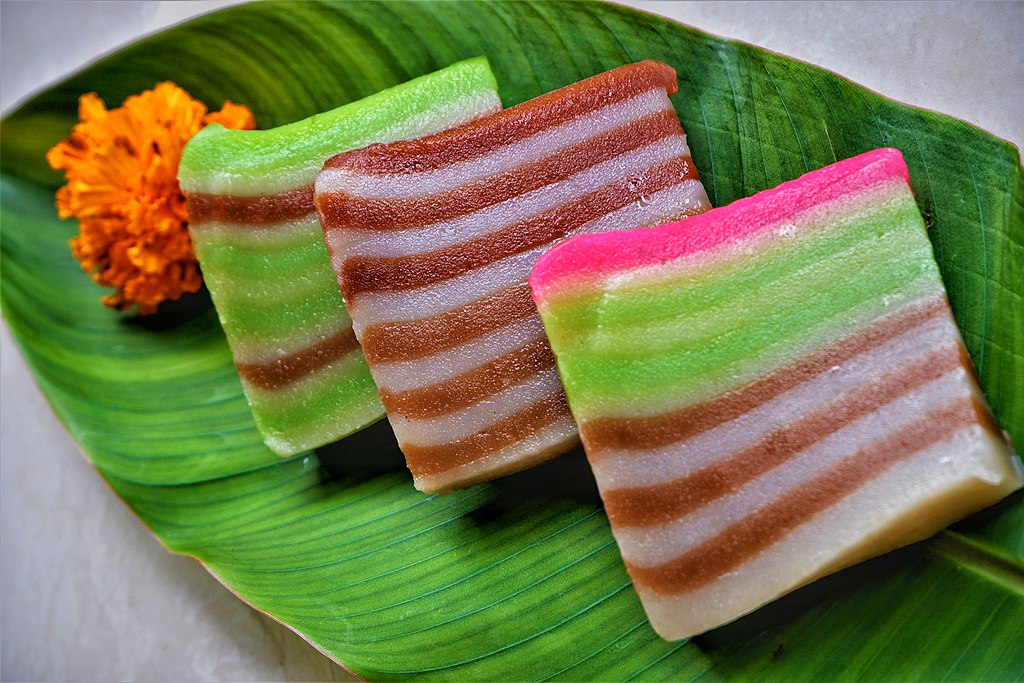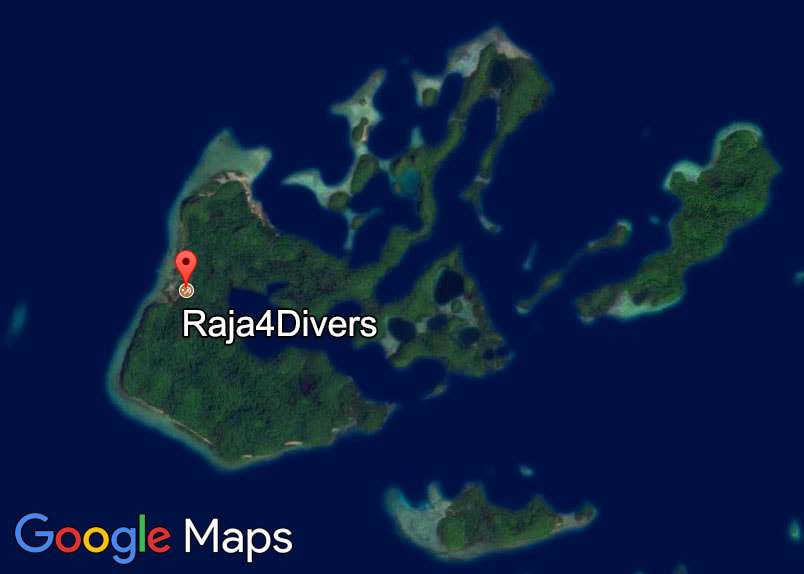|
Even though it is currently Ramadan and our Muslim employees are fasting, I’ll talk about food today. Fasting during Ramadan doesn’t mean they don’t eat at all. It just means no eating and drinking (and smoking for that matter) from sunrise to sunset. But breakfast and dinner are just as elaborate if not more than usual. Especially breaking the fasting at sunset always starts with a sweet snack and «Es Buah», a very sweet ice-cold drink of water, syrup, condensed milk, sugar, fresh fruit cut into small pieces and small jelly cubes. My colleagues absolutely love it, but for my taste it’s far too sweet. As a general rule, Indonesians love to snack. And they seem to be doing it all day long when they are not fasting. In between the three big meals they get at the resort they will usually have a few snacks, such as sunflower seeds, crisps/chips, cookies, or chocolate, but also instant noodles («just add water»), to mention just a few. The notion of «snack« is very wide, as you may have noticed. We have a small staff shop at the resort that sells everything from toothpaste to cigarettes and snacks. I think, apart from the money they send home to their families, most of our employees’ money is spent on snacks they buy at the staff shop, the «Toco Pef». Snacks may be sweet or savoury and it’s not always the shape or style that tells you what the taste will be like. Some cookies may look sweet, but they turn out to be a mixture of slightly savoury but also sweet, with a touch of cheese to finish it off. And if something is called «kue» (cake) it is not automatically sweet, as westerners might expect. «Kue» can be anything from sweet cakes or doughnuts to savoury spring rolls or fried rice cubes filled with vegetables and noodles. The variety is immense and there is not specific time to eat «kue».
Whenever we are in Sorong, spending a few days at our office that also serves as a place to sleep for us, sooner or later one of my colleagues will turn up shouting «Ada kue!» and presenting a box full of snacks that everyone gladly digs into even if they’ve just finished a meal. These snacks often consists of either sugary doughnuts or cakes from the local bakery chain or various types of fried rice or coconut balls (which I like a lot), but it may also be sticky rice cooked in a palm leaf that I would normally eat as a side dish with a full meal. Snacking seems to be a national passion, and the sweeter the better. This includes hot or cold drinks as well, which are either soft drinks or coffee or tea with at least three big spoons of sugar as well as a generous splash of sweetened condensed milk. Recently, our team was shocked to hear that, due to financial reasons, the staff of another dive resort in our area similar to ours had been rationed to 1kg of sugar per day for the entire staff (currently consisting of a little over 20 people). Are you serious? 1kg for 20 people every day is a lot of sugar, in my opinion! But not to them. And the funny thing was that they were not shocked about the fact that this resort also rationed the daily portion of rice! This didn’t seem to bother them half as much as the rationed sugar, which was THE topic for days. Some of my female colleagues have taken up the habit of interval fasting on a regular basis in order to control their weight or lose some. Which means they do not eat anything during the day. But it seems, this doesn’t apply to snacks, as on more than one occasion, one of them came to dinner taking only a small portion and – after my questioning look – explained that they were not very hungry because they had been snacking in the afternoon. Well, I’m not entirely sure this is the idea of interval fasting, but hey, you can’t help your nature sometimes, can you;-)?
0 Comments
Leave a Reply. |
#TalkingWithMangrovesI never even dreamt of working on a remote island in Indonesia, but life has a way of taking care of itself… Archives
May 2021
|
LocationPulau Pef - Raja Ampat - Indonesia
|
Follow Us
Our Office in SorongJl. Gagak No.7 B, Km 7 Gunung, RT.001 RW.002
Kelurahan Malengkedi, Remu Utara PO Box No.130 Sorong 98416 – Papua Barat - Indonesia Phone +62 (0)811 485 7711 |
Rates and information are subject to change without notice. Terms and Conditions apply. All rights reserved.
Imagery is copyrighted and may not be used without express permission and written consent.
Images and videos of the following photographers / videographers were used for this website:
Barbara Moll, Claudia Peyer, Pere Rubio, Thomas Haider, Filip Staes, Christian Kaufmann, Dos Winkel, Duri Mayer, Jürgen Freund,
Daniel Brinckmann, Amanda Künzle, Joram Zimmermann, Ramon Sibold, Roman Keller, Barbara & Markus Aichinger, Fabienne Hadorn, Andreas Hadorn,
Armin Keller, Marcel Rudolph, Sabrina Inderbitzi, Peter Löseke
© 2024
Imagery is copyrighted and may not be used without express permission and written consent.
Images and videos of the following photographers / videographers were used for this website:
Barbara Moll, Claudia Peyer, Pere Rubio, Thomas Haider, Filip Staes, Christian Kaufmann, Dos Winkel, Duri Mayer, Jürgen Freund,
Daniel Brinckmann, Amanda Künzle, Joram Zimmermann, Ramon Sibold, Roman Keller, Barbara & Markus Aichinger, Fabienne Hadorn, Andreas Hadorn,
Armin Keller, Marcel Rudolph, Sabrina Inderbitzi, Peter Löseke
© 2024


 RSS Feed
RSS Feed

